![]()
![]()
![]()
Use LEFT and RIGHT arrow keys to navigate between flashcards;
Use UP and DOWN arrow keys to flip the card;
H to show hint;
A reads text to speech;
114 Cards in this Set
- Front
- Back
- 3rd side (hint)
|
(K,R) 一 |
One (1) (Kun: ひと.つ) (On: イチ) |
|
|
|
(K,R) 二 |
Two (2) (Kun: ふた.つ) (On: ニ) |
One + One 一+ 一 |
|
|
(R) 丿 |
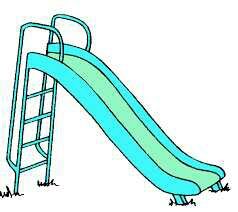
"Slide" |
|
|
|
(R) 亅 |
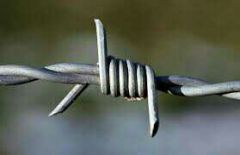
"Barb" |
|
|
|
(K,R) 手 |
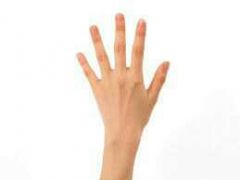
Hand (Kun: て) (On: シュ) (Radical variant: 扌) |
"slide" Two,2 "Barb" 丿+ 二+ 亅 |
|
|
(K,R) 人 |
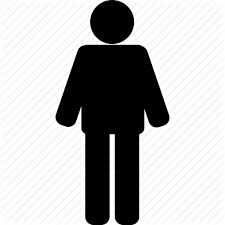
Person (Kun: ひと) (On: ジン、 ニン) |
|
|
|
(K,R) 大 |

Big (Kun: おお.きい) (On: ダイ、 タイ) |
One Person 一 + 人 |
|
|
(K) 天 |

Heavens (Kun: あま-) (On: テン) |
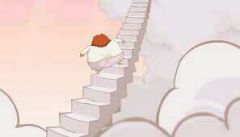
Big One, 1 大 + 一 |
|
|
(K,R) 矢 |

Arrow (Kun: や) (On: --) |
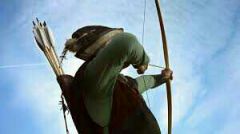
Big guy 大 with a gun Heavens 天 + dot |
|
|
(R) 厶 |
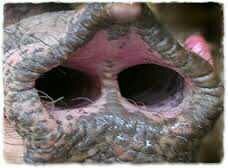
Private ("Pile", "elephant's nose", I, myself, katakana mu radical) |
|
|
|
(K) 挨 |

Approach (Kun: --) (On: アイ) |
Hand Private ("Pile","elephant's nose") Arrow 扌+厶矢 |
|
|
(K,R) 川 |
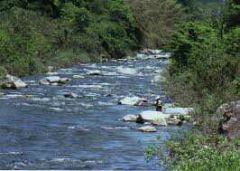
River (Kun: かわ) (On: セン) (Radical variants: 巛, 巜) |
|
|
|
(K,R) 夕 |

Evening (Kun: ゆう) (On: セキ) |
|
|
|
(K) 拶 |
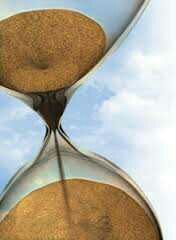
Be imminent (Kun: --) (On: サツ) |
Hand River 巛 (川, 巜) Evening 扌+巛+夕 |
|
|
(W) 挨拶 |

(あいさつ) Greeting |
挨 approach 拶 be imminent |
|
|
(R) 丶 |
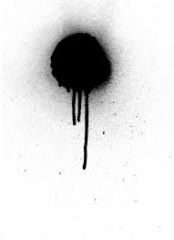
"Dot" |
|
|
|
(K,R) 目 |

Eye (Kun: め) (On: モク) |
Mouth/box Two,2 口+ 二 |
|
|
(K,R) 自 |

Oneself (Kun: みずか.ら) (On: ジ) |
Eye "Dot" 目+丶 |
|
|
(K,R) 己 |

Self (Kun: おのれ) (On: --) (Radical: "snake") |
Radical: 己 Variants: 巳 snake (zodiac) 已 stop, halt |
|
|
(R) 幺 |
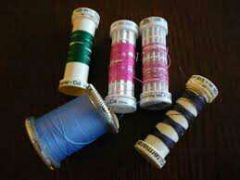
"Short thread" |
|
|
|
(K,R) 小 |
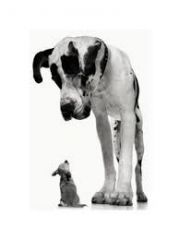
Little (Kun: ちい.さい、 こ-) (On: ショウ) |
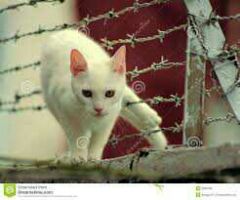
"barbed" wire between "animal legs" - chances of survival...? 亅+ 八 |
|
|
(K,R) 糸 |
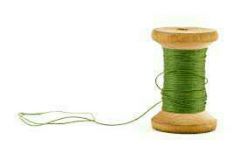
Thread (Kun: いと) (On: シ) (Radical variant: 糹) |
Short thread Little 幺 + 小 |
|
|
(K,R) 口 |

Mouth (Kun: くち) (On: コウ、 ク) |
|
|
|
(R) 囗 (enclosure) |
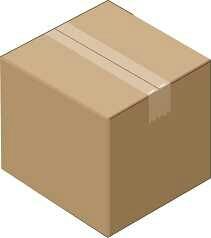
"Box" (Enclosure radical, has other elements inside, unlike "mouth") |
|
|
|
(K,R) 刀 |

Sword (Kun: かたな) (On: トウ) (Radical variant: 刂) |
|
|
|
(K) 召 |

Seduce (Kun: め.す) (On: ショウ) |
Sword Mouth 刀 +口 |
|
|
(K) 紹 |

Introduce (On: ショウ) |
Thread Seduce 糸 + 召 |
|
|
(K,R) 八 |

Eight (8) ("Animal legs") (Kun: や、 や.つ、 やっ.つ) (On: ハチ)
|
|
|
|
(K) 介 |
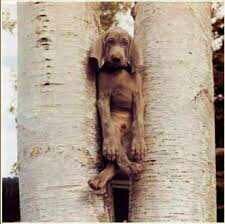
Jammed in (Mediate) (On: カイ) |
Person "Animal legs" (八 8,eight,divide) 人 + ハ |
|
|
(W) 自己紹介 |

(じこしょうかい) Self-intoduction |
Oneself Self Introduce Jammed in |
|
|
(R) 亠 |
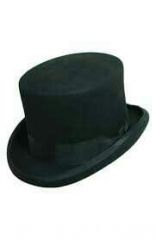
(Kettle lid) "Top hat" |
One+dot |
|
|
(K,R) 衣 |
Garment (clothes) (Kun: ころも) (On: イ) (Radical variant: 衤)
(When it is incomplete - no top part- then "stockings" , as in 哀 "pathetic"; in 長 "long" there is one less stroke in the bottom part) |
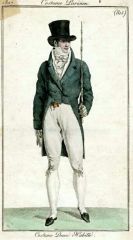
"top hat"+"stockings" |
|
|
(K) 初 |
First time (Kun: はつ、 はじ.め、 はじ.めて) (On: ショ) |
Sword Garment, clothes 刀 + 衣 (衤) |
|
|
(K,R) 女 |
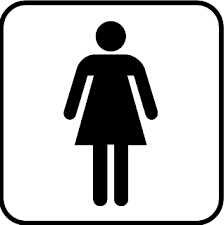
Woman (Kun: おんな、め) (On: ジョ) |
|
|
|
(K) 台 |
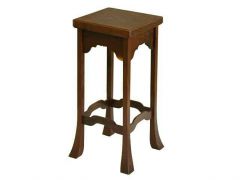
Pedestal (Kun: うてな) (On: ダイ、 タイ) |
Mouth "Pile","elephant's nose", private 口+ 厶 |
|
|
(K) 始 |
Begin (Kun: はじ.める、 はじ.まる) (On: シ) |
Woman Pedestal 女+台 |
|
|
(P) はじめまして (Other forms) (初めまして) (始めまして) |
Nice to meet you ("I'm glad to meet you [for the first time]" / "Let’s begin [this relationship].")
(This is usually translated as "How do you do?" but you’re really saying "Let’s begin [this relationship]". Only say this the first time you meet someone.) |
初 first time 始 begin |
|
|
(R) 丨 |
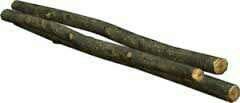
"Stick" |
|
|
|
(K,R) 木 |
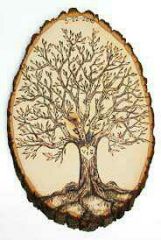
Tree (Kun: き) (On: ボク、 モク) |
Big Stick 大+ 丨 |
|
|
(R) 禾 |
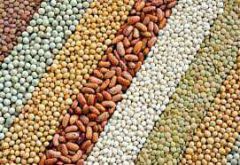
(Two-branch tree) "Grain" |
Slide Tree 丿+ 木 |
|
|
(K) 私 |
I (me) (Kun: わたくし、 わたし) (On: シ) |
Grain Private, "pile", elephant's nose" 禾+厶 |
|
|
(K,R) 日 |
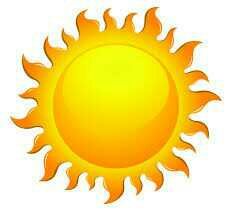
Sun (day) (Kun: ひ、-か) (On: ニチ、 ジツ) |
Mouth/box One 口+ 一 |
|
|
(K,R) 十 |
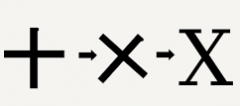
Ten (10) ("Cross") (Kun: とお、 と) (On: ジュウ) |
One Stick 一+ 丨 |
|
|
(K,R) 田 |
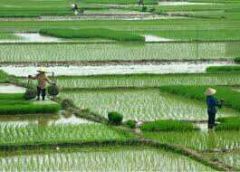
Rice field (Kun: た) (On: デン) |
Mouth/box Ten/"cross" 口+ 十 |
|
|
(K) 申 |
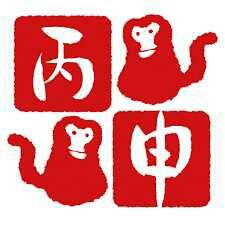
Have the honor to (Kun: もう.す、 さる) (On: シン) (Also: in zodiac sign of the monkey) |
Sun Stick | + 日 Radical: 田 rice field |
|
|
(W) 申す |
(もうす) to say (to be called) (Keigo - humble language) |
申 have the honor to |
|
|
(P) 私 は [マリ] と 申します |
(わたしは [マリ] ともうします。) My name is Mary (申す -> 申します) |
|
|
|
(R) 冖 |

"Crown" |
|
|
|
(R) 宀 |
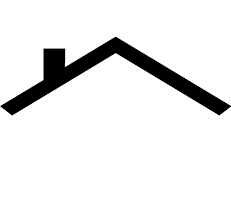
"house roof" (shaped crown, katakana u radical) |
Crown + dot 冖 + 丶 |
|
|
(K) 且 |
Moreover ("Crooked eye") (Kun: か.つ) (On: ショ) |

|
|
|
(K) 宜 |

best regards (Kun: よろ.しい、よろ.しく) (On: ギ) |
"house roof" "Crooked eye" 宀 +且 |
|
|
(W) よろしく (Other form) (宜しく) |
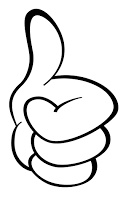
well (properly) (suitably) |
宜 best regards |
|
|
(R) 厂 |

"Cliff" |
|
|
|
(K,R) 白 |

White (Kun: しろ.い) (On: ハク) |
|
|
|
(K,R) 水 |

Water (Kun: みず) (On: スイ) (Radical variants: 氵, 氺) |
|
|
|
(K) 泉 |
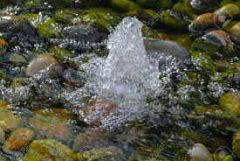
spring (fountain) (Kun: いずみ) (On: セン) |
Water White 水+白 |
|
|
(K) 原 |

meadow (original) (Kun: はら) (On: ゲン) Another variant: 厡 (cliff + spring, fountain) |

Cliff White Little 厂 +小 +白 |
|
|
(K,R) 首 |
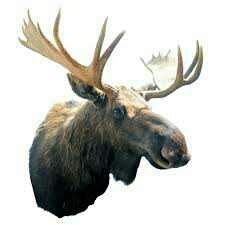
Neck (Kun: くび) (On: シュ) |
Oneself 自 + "horns" |
|
|
(K,R) 頁 |
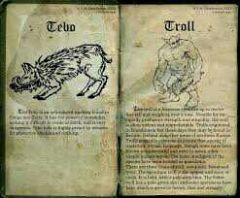
Page (Kun: ぺえじ) (On: ケツ) |
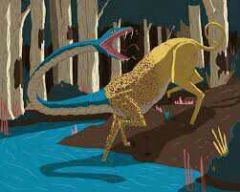
Neck (without "horns") on "animal legs" 首+ ハ |
|
|
(K) 願 |

petition(wish) (Kun: ねが.う) (On: ガン) |
Page Meadow 頁+ 原 |
|
|
(W) 願い |
(ねがい) request (desire, wish, prayer, petition, application) |
|
|
|
(P) お願いします |
(おねがいします) Please |
|
|
|
(P) よろしく お願いします。 |
(よろしくおねがいします。) Please be kind to me. |
|
|
|
(K) 早 |

early (fast) (Kun: はや.い) (On: ソウ、サッ) |
Sun, day Ten, 10 / "cross" 日+ 十 |
|
|
(W) 早く |
(はやく) Early (soon, quickly, fast)
(Other form: 速く) |
早 early, fast |
|
|
(P) お早う |
(おはよう) Good morning ( This is used to greet someone the first time you see them that day. ) (Colloquial) |
From 早く- early |
|
|
(P) お早うございます |
(おはようございます) Good morning
(This is used to greet someone the first time you see them that day. Since you usually see people first in the morning, you'll most often use this phrase as "good morning." Polite language) |
早 early |
|
|
(W) 日 |
Day (sun) (ひ) (Day, days) (Sun, sunshine) (Case, esp. unfortunate; event) (にち) (Sunday - abbreviation) (day of the month) (counter for days) (か) (day of month) (counter for days) |
|
|
|
(K) 今 |
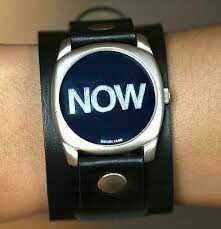
Now (Kun: いま) (On: コン、 キン) |
Person 人 + one/dot + katakana "fu"
Similar: 令 orders, ancient laws (except: katakana "ma") |
|
|
(W) 今日 |

(きょう) Today |
今 now 日 day, sun |
|
|
(P) 今日は |
(んにちは) hello (good day - daytime greeting)
(This is your all purpose hello for the afternoon.) |
Today + "wa" particle |
|
|
(R) 儿 |
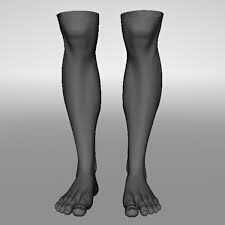
"human legs" |
"slide" + "barb" |
|
|
(R) 勹 |

(Wrapping enclosure) "Bound up" |
"slide" + "open scissors" |
|
|
(K) 兄 |
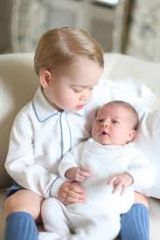
elder brother (Kun: あに) (On: ケイ、 キョウ) |

Human legs Mouth 儿 + 口 |
|
|
(K) 免 |
excuse (dismissal) (Kun: まぬが.れる) (On: メン) |

Radical: Human legs 儿
Bound up Stick Elder brother 勹 +| + 兄 |
|
|
(K) 晩 |

nightfall (On: バン) |
Sun Excuse 日 + 免 (the time when sun is being dismissed) |
|
|
(W) 今晩 |
(こんばん) Tonight (this evening) |
Now + nightfall |
|
|
(P) 今晩は |
(こんばんは) Good evening
(This is your hello for evening and night time.) |
Tonight + "wa" particle |
|
|
(K,R) 牛 |
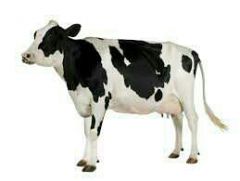
Cow (Kun: うし) (On: ギュウ) (Radical variant: 牜) |
"gun" + ten 十 |
|
|
(K) 先 |
before (Kun: さき、 ま.ず) (On: セン) |
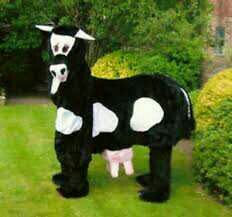
Cow 牛 + "human legs" |
|
|
(W) 先 |
(さき) previous (prior; former; some time ago; preceding)
(Has other meanings, e.g. point of a pencil) |
|
|
|
(W) 先に |
(さきに) previously (before; earlier than; ahead; beyond; away; recently) |
|
|
|
(K,R) 示 |
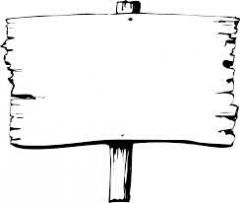
show ("sign") (Kun: しめ.す) (On: ジ、 シ) (Radical variant: 礻) |
Two Little 二 + 小 |
|
|
(K,R) 乙 |
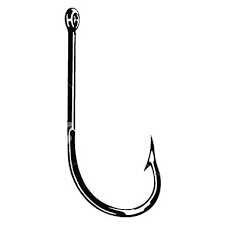
witty ("fishhook", the latter, duplicate, strange) (Kun: おと-、 きのと) (On: オツ) (Radical variants: 乛, ⺄, 乚) |
|
|
|
(K) 礼 |
Thanks (On: レイ、 ライ) |
Sign + fishhook 示 + 乙 |
|
|
(K) 失 |

lose (part with) (Kun: うしな.う) (On: シツ)
(Not about an item or a contest but: consciousnes, hope, a job, a fortune, memory, time) |
大 big "gun", but not an 矢 arrow
|
|
|
(W) 失礼 |
(しつれい) Excuse me (Discourtesy, impoliteness, Goodbye) |
Lose+thanks |
|
|
(W)する (Other form: 為る) |
To do (Adding する after some nouns causes them to become the so called "suru verbs", e.g.:) (勉強する [べんきょうする] - to study ) |
|
|
|
(W) 失礼する |
(しつれいする) To leave (To be rude) (Suru verb) (There is a long "ee" at the end of "しつれい", read it as "shitsuree") |
|
|
|
(P) お先に失礼します |
(おさきにしつれいします) pardon me for leaving (first)
(This literally means, "Excuse me for leaving before you." Say this when you leave and there are still people in the staff room working - which will be most of the time.)
(Less polite abreviation: お先に) |
先 before 失 lose 礼 thanks |
|
|
(K,R) 工 |
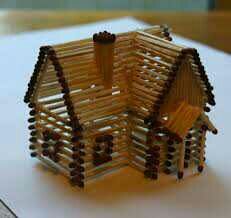
craft (katakana "e" radical) (On: コウ、ク、グ) |
Two Stick 二 + 丨 |
|
|
(K,R) 王 |
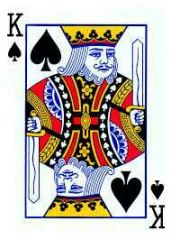
King (On: オウ)
(玉 "jade" is a real radical here, but in many characters it lacks the dot so it looks like "king") |
工 craft + 一 one 三 three + 丨stick |
|
|
(K,R) 羊 |
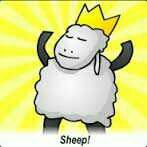
Sheep (Kun: ひつじ) (On: ヨウ) (Radical variant: ⺶) |
King 王 on the "srick" and with "horns" |
|
|
(K) 様 |
Polite suffix (Esq.) (Kun: さま、 さん) (On: ヨウ、 ショウ) |
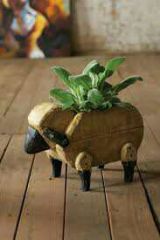
Tree Sheep Water 木+羊+水 |
|
|
(W) 様 |
(さま) Mr. (Mrs., Miss, Ms.) (Honorific or respectful suffix after a person's name or position, etc.) |
|
|
|
(R) 冫 |
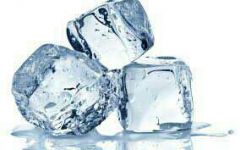
"Ice" |
|
|
|
(R) 广 |

"House on a cliff" |
Cliff+dot |
|
|
(R) 疒 |

"Sickness" |
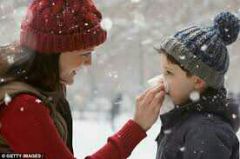
冫ice + 广 house on a cliff |
|
|
(K,R) 又 |
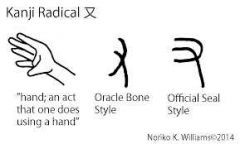
Again ("right hand") (Kun: また) (On: --) |
|
|
|
(K,R) 皮 |
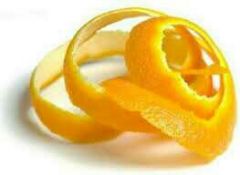
Skin (Pelt) (Kun: かわ) (On: ヒ) |
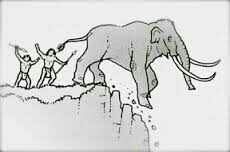
Cliff + stick + 又 "right hand"/again |
|
|
(K) 疲 |

Exhausted (Kun:つか.れる)(On: ヒ) |
Sickness 疒 Skin 皮 |
|
|
(W) 疲れ |
(つかれ ) tiredness (fatigue) |
|
|
|
(P) お疲れ様でした |
(おつかれさまでした) Thank you for your hard work
(This means "You worked hard." Think of it as saying, "Good job today." Say this when someone leaves the staff room and you are still working.) |
お - polite prefix 疲れ - tiredness 様 - polite suffix after person's name です in past tense |
|
|
(P) お疲れ様です。 お先に失礼します。 |
(おつかれさまです。 おさきにしつれいします。) Thank you for working hard. Excuse me for leaving before you.
(When you leave and others are still working, you can be extra polite by combining お疲れ様 with お先に失礼します. Notice you're using です instead of でした at the end of お疲れ様. That's because your co-workers are still working. You're saying "you're working hard" instead of "you worked hard.") |
|
|
|
(K) 名 |

Name (Kun: な) (On: メイ) |
Mouth Evening 口 + 夕 |
|
|
(R) 冂 |
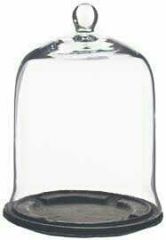
(Upside-down box) "Jar" |
|
|
|
(K) 刺 |
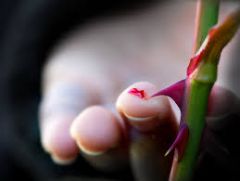
Thorn (Kun: とげ、さ.す、さ.さる、さ.し) (On: シ)
(The phonetic component 朿 also means "thorn" but is rare) (It means also "to stab", and in this sense there are other kun readings: さ.す、さ.さる、さ.し) |
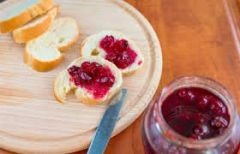
Sword Tree "Jar"/upside-down box 刀+ 木+ 冂 |
|
|
(W) 名刺 |

(めいし) Business card (Meishi mean a lot to the people who give them. Shoving them in your pocket, or throwing them away, is a big insult.) |
Name Thorn |
|
|
(K) 六 |
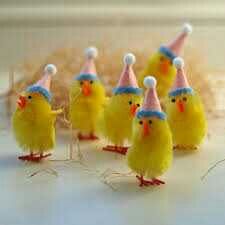
Six (6) (Kun: む、 む.つ、 むっ.つ)(On: ロク) |
Top hat Animal legs |
|
|
(K,R) 立 |

Stand up (Kun: た.つ) (On: リツ) |
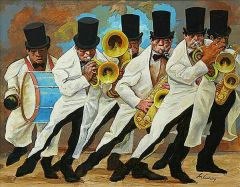
"Six" 六 on the "floor" |
|
|
(K,R) 生 |
Life (Kun: い.きる) (On: セイ) |
cow 牛 on the "floor" |
|
|
(K) 産 |
Give birth (Kun: う.む、 う.まれる) (On: サン) |
Life Stand up Cliff 生 + 立 + 厂 |
|
|
(K,R) 土 |
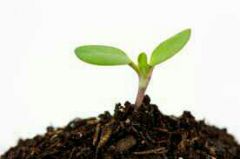
earth (soil , ground)(Kun: つち) (On: ド、 ト) |
Ten/"cross" 十 + "floor" |
|
|
(W) お土産 |
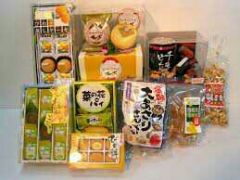
(おみやげ) souvenir
(Uncomman kanji readings)
(Omiyage are obligatory gifts given to colleagues when someone returns from a trip. It’s a way of saying "thanks for holding down the fort while I got to go away." Giving omiyage is a great way to maintain and build your working relationships. Usually omiyage consists of some consummable goods that are a local delicacy.) |
お - honorable prefix Earth Give birth Less common reading of 土産 is どさん, and then it can also mean "products of the land" |

